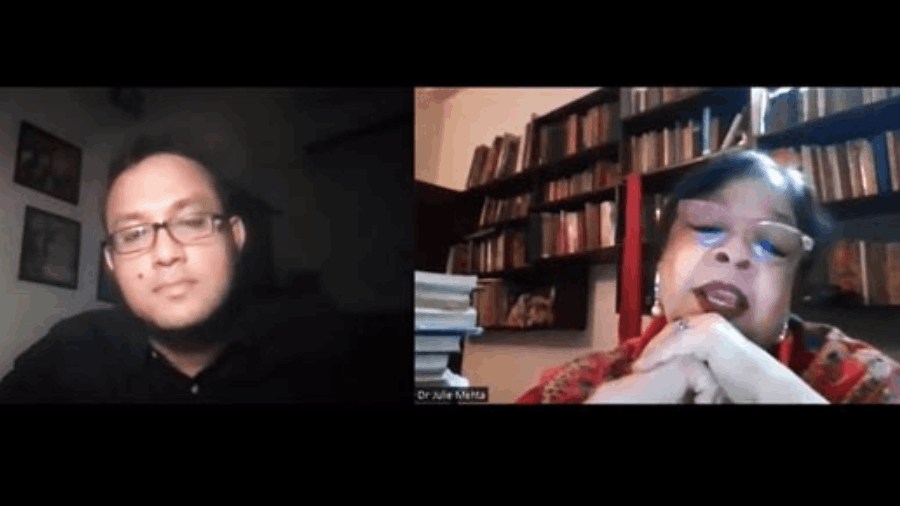The subject of discussion at the monthly Book Club session of The Bengal Club held on September 3, was author Salman Rushdie’s work, Haroun and the Sea of Stories. The online event was hosted by Julie Banerjee Mehta, conceptualiser and anchor of The Bengal Book Club. The event spoke about the fourth and one of the most famous works of Rushdie, which he had written as a result of the fatwa against him backed by Ayatollah Khomeini. This particular work by the author has birthed many debates and discussions.
The session started with a very informative and creatively put-together slide show about Rushdie’s works, his life, his villa, his books, and altogether a very well-summarised introduction about him, which the Julie intricately narrated. The honorary guest at the session was author and professor Avishek Parui who discussed the book, a work he says is very close to his heart. He spoke about the unique writing method, the art of empathy, and the significance this book has on memory studies. Parui said, “This novel focuses on the art of storytelling, how storytelling is an important part of our lives, where it helps when the voices are suppressed, memories are lost.... I think this is a beautiful piece of fiction; it is very close to me.”
The novel opens and takes place in part in “a sad city, the saddest of cities, a city so ruinously sad it had forgotten its name”, which sits next to “a gloomy sea full of glumfish”, which were so miserable to eat that they made people belch with melancholy. Many people live in this city, but only the protagonist, Haroun, and his parents ever experience genuine joy. To the north of the city are purportedly located industries that produce and export nothing but misery. Rain brings welcome relief from the industries’ air pollution, and it also signals the advent of pomfret to the waters in the area. The name of the city, Kahani, is finally revealed towards the end of the book.
The two-hour online session not only spoke about the author, but it was an interactive session where all the book club members and the guests of the evening narrated excerpts from the book and discussed the chapters from their perspectives. The book’s protagonist, Haroun, and the many characters supporting him symbolised a rebellion, a political phenomenon, and a chapter from our nation’s events that represented a turning point in the world of fiction.
“One fine day in Ontario, as we were waiting for Salmon Rushdie to give a speech regarding Fury, a book he wrote back then regarding the fall of Western civilisation, it was September 2002, and as he was ushered to the stage, a man with piercing eyes, a hush fell into the room. A line that I will never forget that he spoke was, ‘Literature is about trying to reach for the human truth’, and it will stay forever with me, as an important part of my memory,” said Julie.
The session spoke about political allegories, their relationship with the Eastern and Western influences, the importance of freedom of speech, and the tiny but relevant symbolism in the chapters. Every member and individual added minor details about a part of the book that we never saw in the light we are seeing now. The book’s brilliance lies in its ability to bring out the voice of truth, and everybody agreed that it was one of the best and the most famous works of fiction of this century. The event ended with a brilliant note from the anchor and brought out various angles of the book and, of course, the author that we have never known in a manner like this before.
